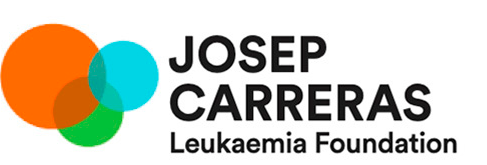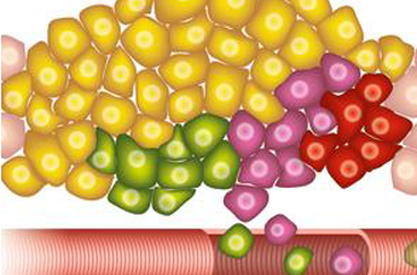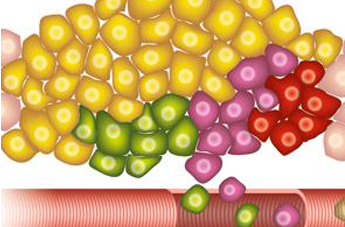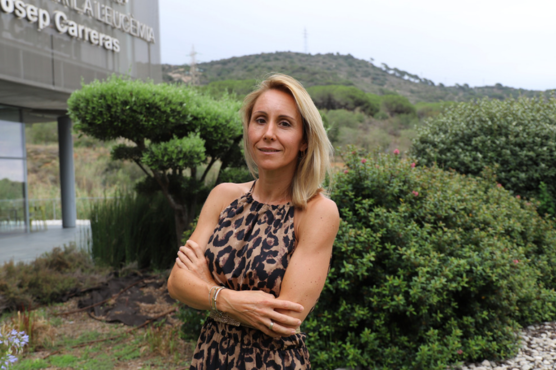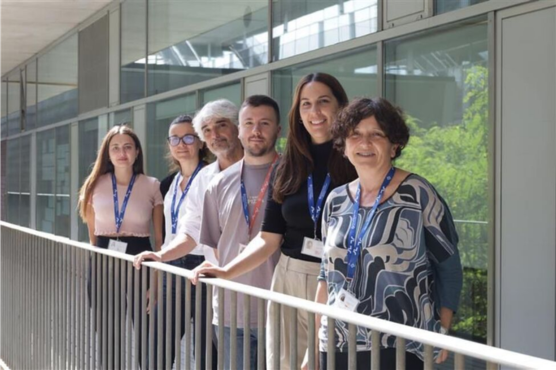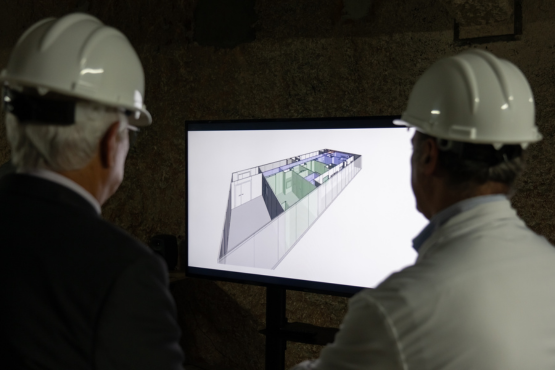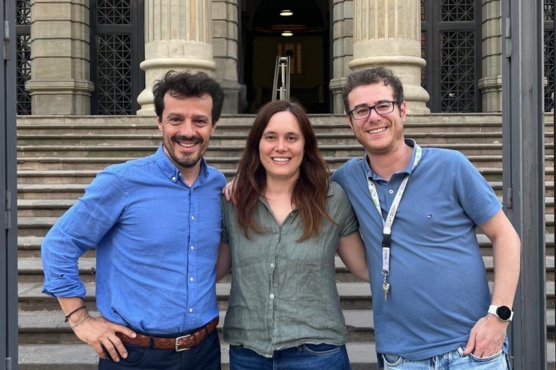On 6 and 7 March, the Paranimf at the University of Barcelona Faculty of Medicine will be hosting some of the world’s most renowned experts on tumour clonal heterogeneity.
On 6 and 7 March, the Paranimf at the University of Barcelona Faculty of Medicine hosts some of the world’s most renowned experts on tumour clonal heterogeneity. This concept calls for a new approach for research into, and treatment of, cancer and is the central theme of the ICREA-Josep Carreras Foundation conference, “Tumour heterogeneity and the evolution of cancer: from bioinformatics to clinical practice”.
The event, which is being held under the auspices of the ICREA, the Josep Carreras Foundation and the Josep Carreras Leukaemia Research Institute, will bring some of Spain’s foremost scientists together including, Prof. Josep Tabernero, from the Hospital de la Vall d’Hebron Institute of Oncology (VHIO); Prof. Joan Seoane, ICREA professor and member; Prof. Núria López-Bigas, ICREA professor and member of the Barcelona Biomedical Research Institute (IRB); Dr. Jaume Mora, head of pediatric oncology at the Hospital Maternoinfantil Sant Joan de Déu, in Barcelona; Prof. David Torrents, ICREA professor and member of the Barcelona Supercomputing Centre, Prof. Pablo Menéndez, ICREA professor and scientific director of the Josep Carreras Leukaemia Research Institute’s University of Barcelona Hospital Clínic Campus, and Prof. Ignacio Varela, lead researcher at the University of Cantabria Institute of Biotechnology and Bioengineering. And visiting us from abroad will be such renowned international figures as Prof. Carlo Maley, from Arizona State University School of Life Sciences; Prof. John Dick, from the Princess Margaret Centre of Toronto; Prof. Peter Dirks, from the Hospital for Sick Children, in Toronto; Prof. Christina Curtis from Stanford University School of Medicine; Prof. Eric Hollander from the Fred Hutchinson Cancer Center in Seattle and Prof. Alberto Bardelli, President of the European Association for Cancer Research, amongst others. (see the complete programme).
The progress that has been made in molecular and genome biology over the last ten years has ushered in a new phase for translational cancer research. The idea of cancer, which was previously based on the study of the tumour as a homogeneous whole of malignant cells for the sequential acquisition of driver mutations, has taken a turn to the point where tumours are now considered as a body consisting of different subclones.
By 1976, Nowell was already considering tumour evolution in terms of Darwin’s theory and had suggested that it was genetic instability that was responsible for the heterogeneity of tumour cells. This idea implies that all tumours are ecosystems of cell clones that evolve. This is of fundamental importance for patients’ clinical treatment, both from the point of view of diagnosis, as well as that of treating and tracking the disease.
Studies demonstrating this theory have become more complex over recent years. Thanks to cytogenetics and Sanger sequencing, and then to fluorescence in situ hybridization (FISH) studies, and more recently, massive sequencing, huge advances have been made in the genetic characterisation of cancer. Consequently, the study of cancer has become a complex evolutionary and adaptive process of genetic diversification.
Clonal heterogeneity therefore raises many questions. How can malignant cells that are so different from each other be attacked? Why do some patients suffer relapse while others do not? Will we ever achieve complete responses from patients with directed monotherapies, or will it necessary to combine drugs and treatments? Should this emerging knowledge be applied to the way in which minimal residual disease is measured in tracking studies?
Over the course of two days, distinguished researchers and doctors will meet together to consider present challenges in the diagnosis, treatment and tracking of cancer and resistance to therapy. They will also be discussing future strategies and tools for analysing intratumoural heterogeneity from the points of view of basic and clinical research.
+ Information: http://www.icreafijcconference.com

